Your Gut-Brain Connection: 7 Unexpected Foods That Calm Anxiety Instantly
Feeling anxious has become a nearly universal experience, especially when juggling everyday responsibilities. But what if part of the solution lies not in your calendar but on your plate? The gut-brain connection—a conversation happening deep inside each of us—can shape how we cope with daily stress. That flutter in your stomach before a big event? Or the sudden calm after a comforting meal? Science now shows your digestive system isn’t just for breaking down food; it also helps produce the mood-boosting chemicals your brain needs, like serotonin, of which about 95% is made right in your gut. Many articles offer the usual suspects: leafy greens, yogurt, salmon. These are wonderful, but they’re not your only allies. If you’re curious about gentler, sometimes surprising ways to support your mental well-being, you’re in the right place. Here, you’ll discover seven unexpected foods—each backed by scientific research—that can help quiet anxiety quickly by nourishing the powerful partnership between your gut and brain. Think of this list as a toolkit, filled with options you can easily try, one meal or snack at a time. Let’s explore how a few tiny changes could make each day a little steadier, a little brighter, and a lot more hopeful.
1. Fermented Vegetables: Kimchi & Sauerkraut
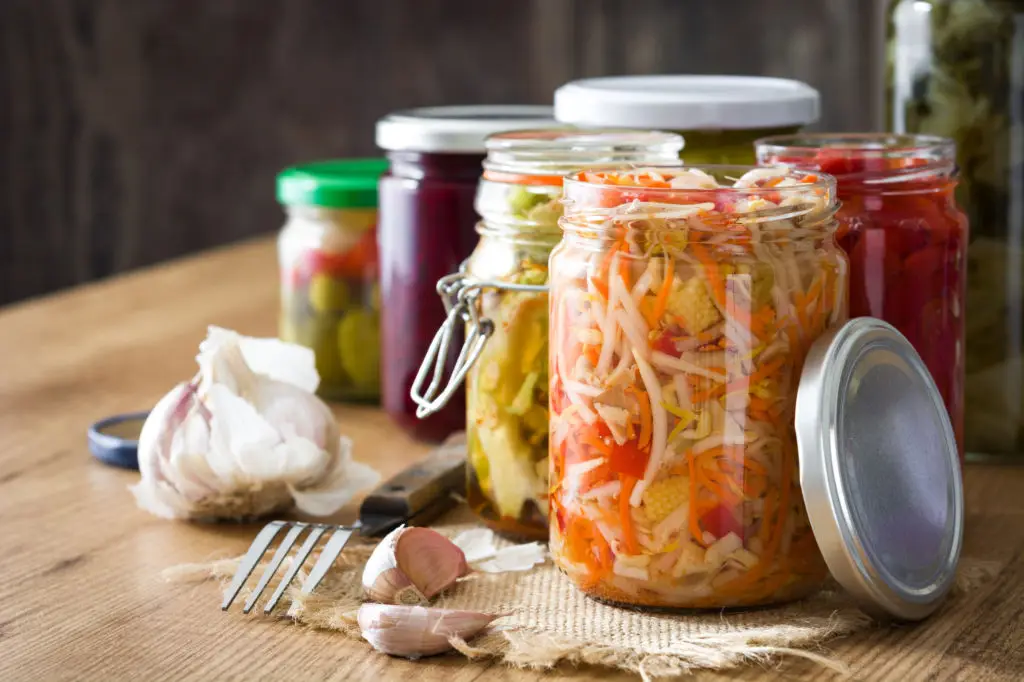
When people talk about gut-healthy foods, yogurt usually grabs the spotlight. But did you know that fermented vegetables like kimchi and sauerkraut are powerful mood allies hiding in plain sight? Both are rich in psychobiotics—live, beneficial microbes that can significantly boost the balance of your gut microbiome. Recent research published in Nature found that eating a variety of fermented foods actually increased healthy gut bacteria and, even more excitingly, led to reductions in anxiety and stress symptoms over just a few weeks. Here’s the science: these crunchy, tangy veggies go beyond basic probiotics. Their unique mix of natural bacteria encourages your gut to produce more serotonin, fueling mood stability and reducing stress signals before they can overwhelm you. If you’re not sure how to start, try adding a forkful to a grain bowl, sandwich, or even eggs for breakfast. Because they’re less sweet and less processed than store-bought yogurts, kimchi and sauerkraut are a flavor-packed switch-up with surprising benefits. Each bite is like a tiny nudge toward a more resilient mind, giving your gut the support it needs to help calm worries in real time.
2. Eggs

Eggs might seem ordinary, but they’re remarkably powerful when it comes to supporting your mood. The humble egg delivers choline—an essential nutrient that many people overlook. Choline is a key building block for acetylcholine, a neurotransmitter involved in memory, focus, and most importantly for this topic, emotional regulation. Studies from clinical nutrition journals link higher choline intake to reduced anxiety and steadier moods, showing that these breakfast staples work well beyond supplying protein. Because choline is found mostly in the yolk, eating whole eggs gives your brain direct access to this gentle mood supporter. Beyond the science, eggs fit nearly every schedule: hard-boiled for busy mornings, scrambled with herbs for comfort, or even sliced onto salads or avocado toast for a brain-boosting snack. If you’ve ever dismissed eggs as basic or old-fashioned, it’s time to rethink them. With each serving, you’re helping your gut and brain work together, forming a foundation for calmer, brighter days—without overcomplicating what’s already on your plate.
3. Turkey

Turkey often takes center stage at holiday feasts, but it rarely gets credit for its anxiety-calming abilities. What makes it unexpectedly powerful lies in its tryptophan content—a naturally occurring amino acid that your gut converts into serotonin, the neurotransmitter that helps usher in relaxation and happiness. While people sometimes believe only carbohydrates boost serotonin, tryptophan-rich turkey challenges that myth. Several nutrition studies back up turkey’s mood-supporting effects, showing that regularly enjoying lean turkey can encourage more stable, content feelings by directly supporting neurotransmitter balance via the gut-brain pathway. Practical and versatile, turkey fits easily into weekly lunches as lean sandwich fillings, wraps, or paired with whole grains. Even a few slices can nudge your system gently toward tranquility. Many find that swapping processed deli meats for fresh or leftover roast turkey has added benefits: more nutrients, fewer additives, and a steadier mood throughout the day.
4. Chia & Flax Seeds
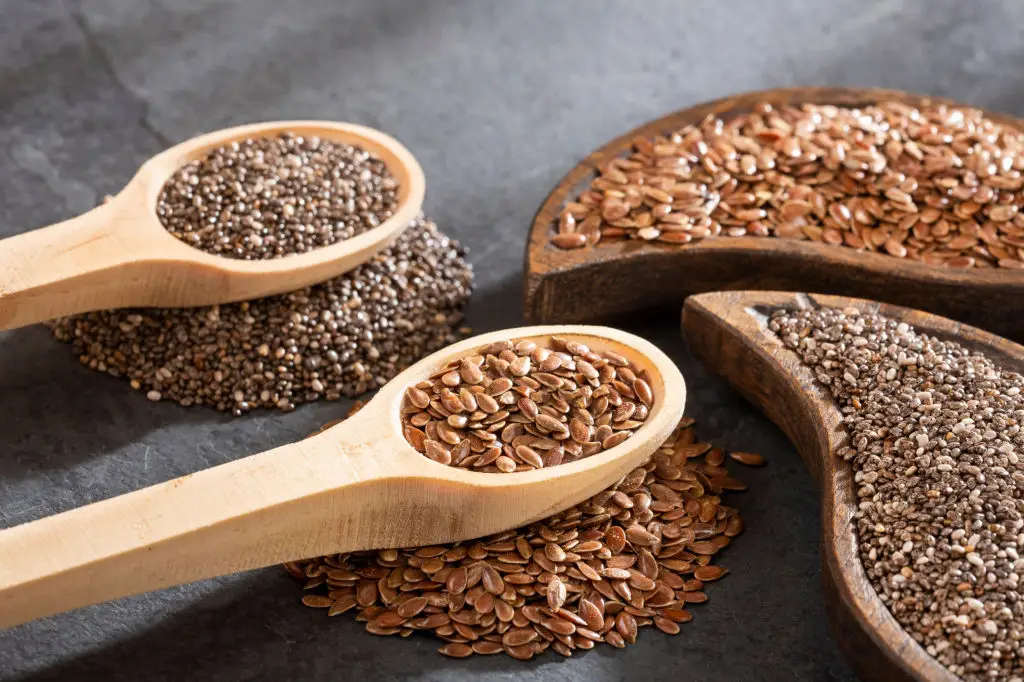
Tiny but mighty, chia and flax seeds pack more punch than their size suggests. They’re some of the richest natural sources of plant-based omega-3 fatty acids, known to reduce neuroinflammation—a hidden trigger for anxiety and low mood. Recent research shows that omega-3s help balance the gut microbiome, foster the production of soothing neurotransmitters, and may even lower overall stress levels in as little as a few weeks. But the benefits don’t stop with omega-3s. These seeds are loaded with fiber, which acts as fertilizer for your gut bacteria, helping them flourish and produce anxiety-buffering chemicals. Try sprinkling a tablespoon of chia or flax seeds onto oatmeal, yogurt, salads, or blend them into a smoothie—no prep required. If you haven’t given these pantry staples a chance, now’s a great moment. Their nutty, mild flavor won’t overpower your food, but the effect on your gut-brain connection just might surprise you, delivering steadier energy and a sense of calm you can truly feel.
5. Whole Grains: Quinoa & Oats
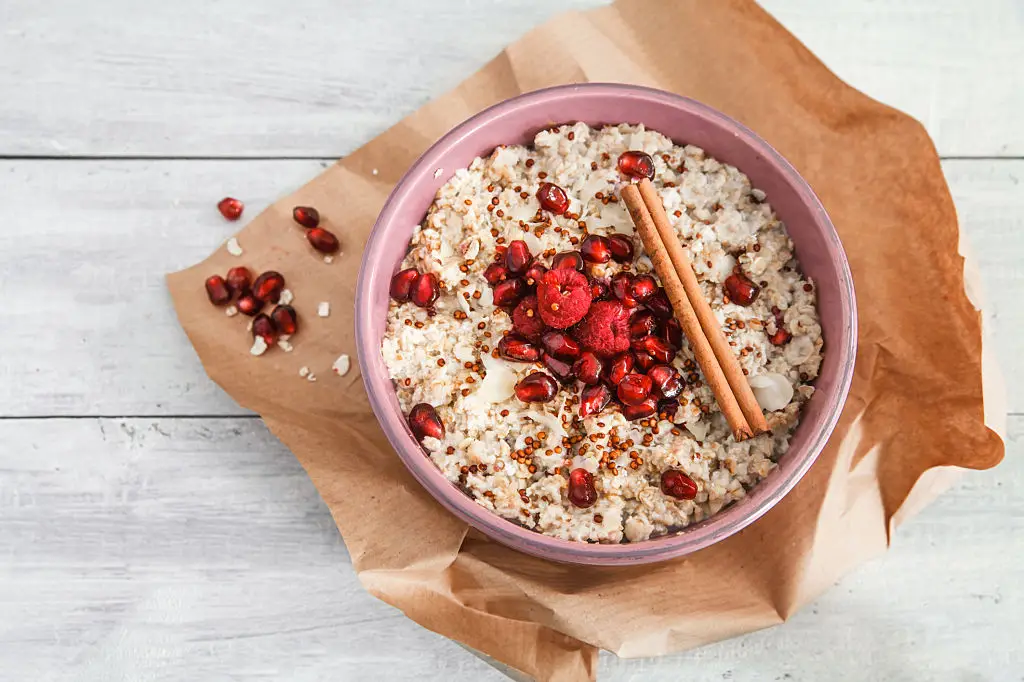
Whole grains like quinoa and oats don’t always get credit for helping with anxiety, but science says they should. These grains fuel your brain with steady glucose—the type of slow-releasing energy that prevents the crashes and jitters brought on by refined carbs. Research has linked diets rich in whole grains to lower anxiety levels because they keep your blood sugar stable and provide fiber for gut microbes. Whole grains are also rich in B vitamins, which are involved in making neurotransmitters that influence mood. This blend of fiber and nutrients means each serving does double duty: supporting your gut bacteria, which then communicate calming signals to your brain. Quinoa shines in grain bowls or as a side dish with veggies. Overnight oats make for a comforting, hands-off breakfast. By choosing these whole, minimally processed foods, you’re nourishing both your body and your emotional resilience—one bite at a time.
6. Avocados
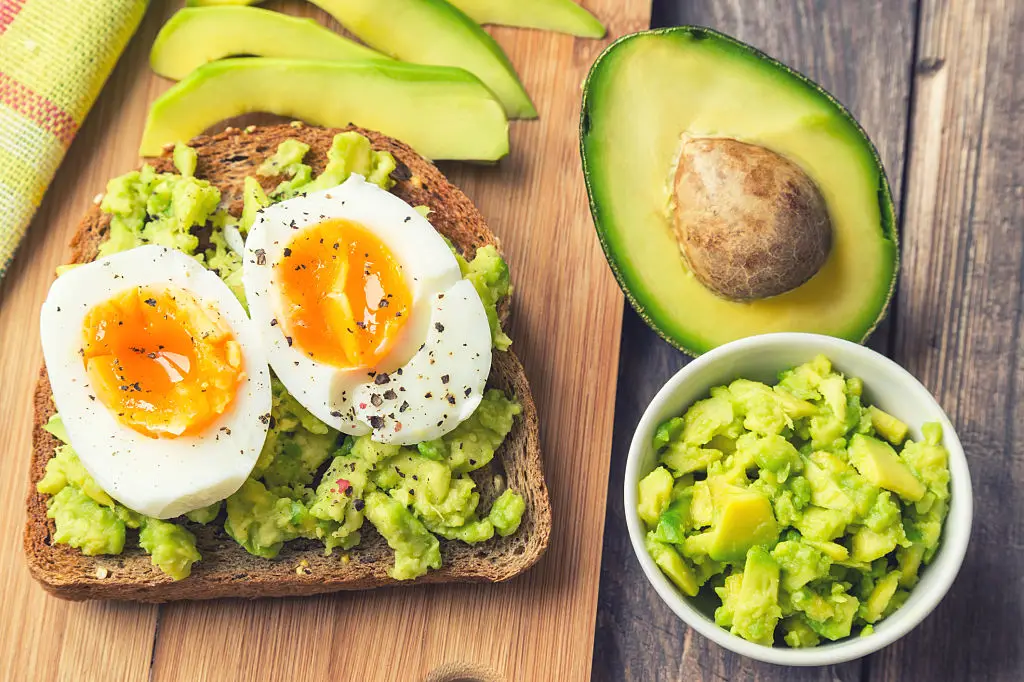
Avocados are adored for their creamy texture, but they’re seldom spotlighted for their unique brain effects. Rich in monounsaturated fats and loaded with B vitamins, avocados help maintain healthy nerve pathways that facilitate clear mood communication between the gut and brain. Research ties higher intake of these nutrients to lower rates of anxiety and depression. The B vitamin folate, found abundantly in avocados, is especially important because it helps keep homocysteine levels in check—high homocysteine is associated with greater risk of nervousness and low mood. Versatility is part of the magic: mash avocados on toast, add slices to grain bowls, salads, or blend into a smoothie for extra creaminess. Each serving becomes a gentle act of self-care, aligning with a holistic approach to feeling better both mentally and physically.
7. Berries
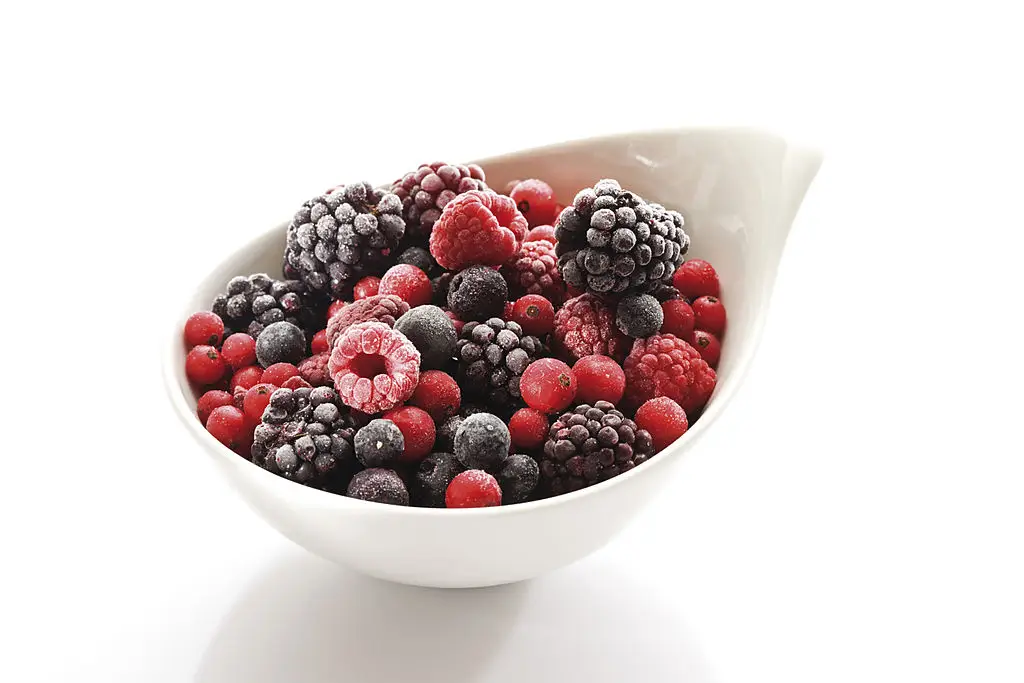
Berries are usually celebrated for boosting immunity, but their effects on the gut-brain axis are equally powerful—just less talked about. Blueberries, strawberries, and their cousins are brimming with antioxidants, substances that help reduce neuroinflammation, which has been closely linked to rising levels of anxiety. Scientists now understand that these antioxidants also support a more diverse gut microbiome, amplifying the production of mood-supportive neurotransmitters. The beauty of berries is how effortlessly they fit into life: toss fresh or frozen handfuls onto cereal, blend them into a smoothie, or simply eat them as a snack. Evidence suggests that eating a variety of berries regularly can contribute to calmer, more balanced emotions and help fortify your defenses against day-to-day stresses. Choose what’s in season or stock your freezer with an assortment. However you enjoy them, you’re not just treating your taste buds—you’re offering your gut-brain connection another chance to help you thrive.
Building a Nourishing Path Forward

There’s no single shortcut to lifelong calm, but every bite you take can be a gentle step toward a more peaceful mind. Embracing the gut-brain connection means seeing food not as a fix to chase perfection, but as a daily act of self-care—compassionate, flexible, and perfectly human. Small changes, like trying out fermented vegetables or enjoying a berry-rich breakfast, won’t erase every anxious feeling overnight. What they will do is help support your body’s natural ability to steady itself, moment by moment. Each of these seven foods—from the tang of kimchi to the wholesome richness of oats—invites you to nourish more than just your gut. You’re cultivating resilience, honoring your own needs, and choosing habits that echo kindness toward yourself. If you try just one new ingredient this week, celebrate that tiny act. With compassion and curiosity, your meals become more than fuel—they’re building blocks for calmer, more connected days to come. You already hold the tools for positive change; now, let this knowledge be your ally in every snack, sip, and shared meal ahead.
